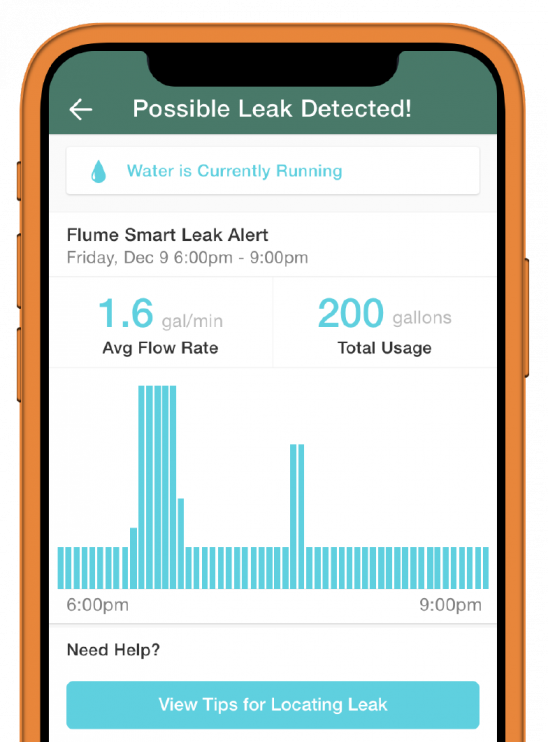Tips For Locating Troublesome Leaks In Your Home
By: Joanna Birns
Small leaks can pack a BIG punch – especially if they aren’t caught quickly. While most homeowners tend not to worry about the possibility of leaks until a major incident has occured, it’s usually the invisible leaks – like slow leaking pipes, dripping faucets, and broken toilet flappers – that really rack up your water bill and damage your home. Flume takes the guesswork out of catching leaks so that you don’t have to.
But once Flume catches a leak, what do you do next? We’ve compiled a list of tips and tricks for you to use to hunt down leaks and put a stop to them faster than you can say “I caught a leak!”
- First, figure out what you’re up against. Flume will let you know how many gallons of water the leak is wasting along with how long the leak has been running. Once you figure out if you’re dealing with a little drip or the mother of all leaks, you’ll have a better understanding of what you should do next. For example, larger leaks are often found in your irrigation system, while smaller ones may require some detective work.
- If your leak is using more than 5 gallons per minute, you’ll want to shut off your water immediately. This can prevent the leak from damaging your home and wasting potentially thousands of gallons of water.
- For major leaks, try walking around your home to see if you can spot the leak. Look for discoloring in walls, puddles near water appliances, or if you’re checking your irrigation, look for large puddles of mud in your yard.
- If you’re dealing with a smaller leak, start by testing your toilet. The quickest way to see if your toilet is leaking is to open your toilet tank, drop dye or food coloring in, and wait 15 to 20 minutes. Then, check in the toilet bowl. If you see colored water in your toilet bowl, you have a leaking toilet.
- Another source of a small leak could likely be a faucet. Check your kitchen and bathroom faucets to see if they’re dripping.
- Did you know: a leaky faucet dripping at the rate of one drip per second can waste more than 3,000 gallons per year?
- If you checked everything you can think of and you still can’t nail down that leak, call a professional! They’ll check your home for leaks and help you get your leak taken care of. Flume Insight members get 15% off select Angi Home Repair services.
Household leaks across the U.S. waste up to 1 trillion gallons of water annually. When you catch a leak and put a quick stop to that water waste, you’re helping to conserve our most precious natural resource. From all of us at Flume, thank you for joining in on the fight against leaks!



